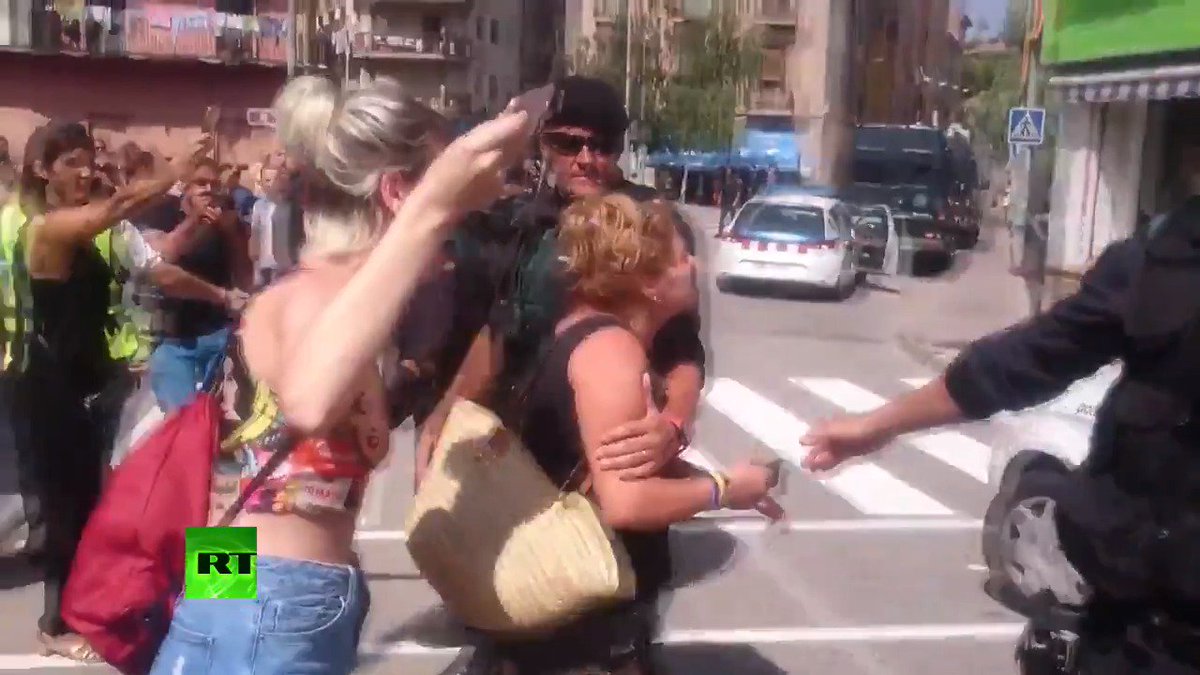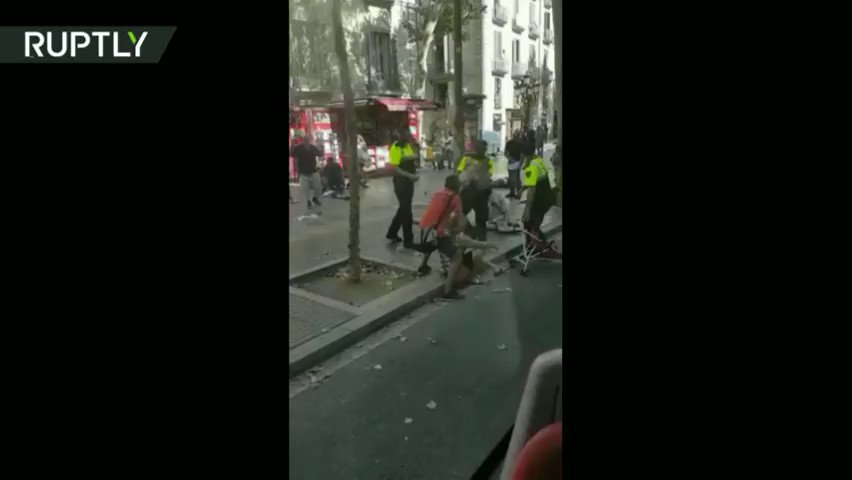‘Barcelona attack not self-defense tactics; radicals want to annihilate the world’
Terrorist attacks in Spain, which isn’t militarily involved in Iraq or Syria, show such attacks aren't self-defense, but radicals want to annihilate the world and to create a global caliphate, says anti-terror expert Jennifer Breedon. Other analysts join the discussion.
People from 34 different countries were among the victims of the vehicle attacks in the Spanish city of Barcelona and the nearby town of Cambrils. At least 14 people were killed and over 100 injured.
Islamic State (IS, formerly ISIL/ISIS) claimed responsibility for the attack in Barcelona's popular tourist street, Las Ramblas.
Anti-terror expert and legal analyst Jennifer Breedon says the location of the attack and the fact ISIS says it was behind it is “significant,” but not surprising.
“It is not very surprising because now ISIS is being tackled in Syria, they are being surrounded, they are about to lose Raqqa in Syria, they have already lost Mosul in Iraq. They have already been trying to regroup and rebrand using some elements of Al-Qaeda, but they are rebranding them and regrouping back in Libya. Libya has been a failed state for years now, and so some of the North African elements are either trying to escape their countries to go to Libya to train with ISIS or straight up just going to sneak into Europe,” she told RT.
Spain hasn’t been directly involved in any of the ongoing military conflicts, including in Iraq in Syria. Before the Barcelona attack, there had been a sense in Europe that countries that are not taking part in operations are safer in terms of terrorist threats. However, according to Breedon, that is a wrong approach.
“Radical, fringe Islamist ideologies is an end times of sort. They want to annihilate the world to create a global caliphate. So, it’s not a self-defense tactic,” she said. “That is an ideology that has been around for a long time, and they are now capitalizing on that.”
Breedon hopes governments “will open their eyes and see” the problem, “specifically in Europe, and the EU countries, which have allowed the flow of migrants to come in with very lazy, very lax and vague boundaries.”
Neil Clark, journalist, and broadcaster, argues that what happened is “just a pattern.”
“We remember back in 2014 – the so-called press spokesman for ISIS Abu Mohammad al-Adnani issued a statement and he called for his followers, the followers of ISIS to use cars and vehicles as weapons against nonbelievers. Since then we’ve had attacks in Nice, France, in London, around the world – in Africa as well, in the Middle East,” he told RT.
After every such attack, there are condemnations from Western leaders saying how they stand with the city concerned and everybody expresses how sad and outraged they are, Neil said. However, he added, nothing changes and “we get another attack a few months later.”
In Clark’s opinion, it’s about time we had a proper debate about the matter and what practical and geopolitical steps need to be taken to reduce the threat of terrorist attacks.
He argues that despite Spain having dealt with terrorism problems before, authorities and police didn’t seem to be prepared for an attack.
“Of course Spain has been involved in terrorist attacks before. We think back to 2004 and the shocking Madrid train bombings when Al-Qaeda killed 192 people…Spain has got a history of this including the history of ETA [Basque military group] and domestic terrorist attacks,” he said.
As to what can practically be done, Clark referred to London’s experience.
“You can put up bollards and ramps to protect the main tourist areas from people driving vehicles into them. That’s happened in London now – a bit too late for the people on Westminster Bridge,” he added.
Retired US Air Force officer Karen Kwiatkowski argues that “car attacks are not complicated to put together – they don’t take a lot of people, don’t take a lot of advanced planning.”
“They are the hardest ones to stop and the easiest ones for terrorists to put together: to get the tools that they need, to get to the place that they need to get to do this kind of activity,” she told RT.
“The better thing to do, and I think many of the European countries are already doing this, and doing much better job than they were doing some years ago – that is simply identifying and understanding the people that are in their countries – both in terms of refugees, immigrants, and their residents,” said Kwiatkowski.
However, according to author and historian Gerald Horne, security services could do much better in preventing attacks.
“What’s shocking about the North Atlantic (NATO) authorities, when it comes to tracking down the suspects of such episodes is that they seem to be bumblers when it comes to carrying out simple matters of surveillance. You see that particularly in the USA, witness the event in Charlottesville, Virginia, when the authorities had sufficient notice about the fact that neo-Nazis, fascists, and Ku Klux Klansmen alt-righters were coming to Charlottesville, but somehow they were not able to stop these thugs from carrying out their dastardly deeds. It seems as if you had the same kind of malfeasance and nonfeasance in Spain,” he told RT.
The statements, views and opinions expressed in this column are solely those of the author and do not necessarily represent those of RT.




0 Comments:
Post a Comment
Subscribe to Post Comments [Atom]
<< Home